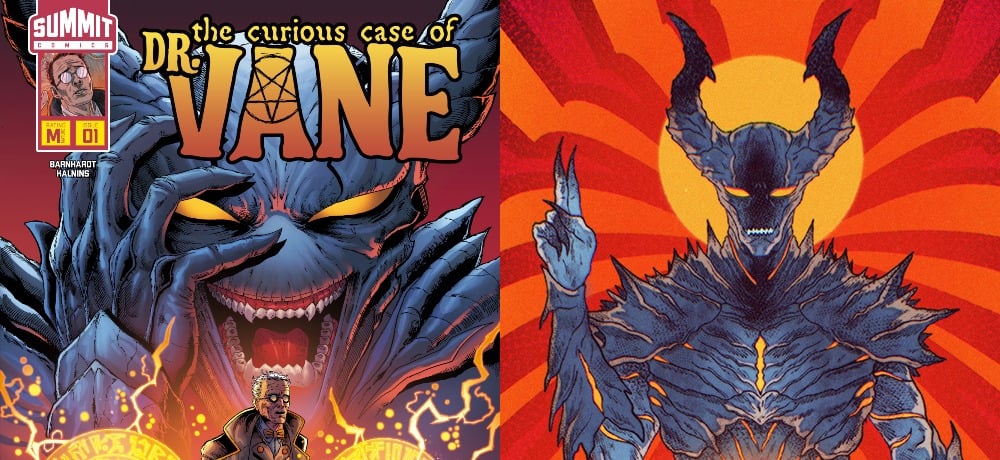






All (post-Romero) zombies are cannibals, but not all cannibals are zombies. This is an important distinction to note for your trading card set, as well for discerning Italian horror cinema. As a youth, I thought it was only the undead with a taste for flesh; that is, until I saw Cannibal Holocaust (1980) and Cannibal Ferox (‘81), two sweet and unassuming films where the living sate their hunger by eating douchey interlopers in various jungle settings. The first especially stands out due to a layer of social commentary splashed about, fighting to be seen in between the real animal slayings and crafted carnage. But it’s there and it’s potent; as it is with Cannibal Apocalypse (’80), an allegorical tale of the inner destruction that the Vietnam War wrought on those who survived. That, and a whole lot of flesh ripping.
Released in Italy in August with a stateside premiere September of ‘81, Cannibal Apocalypse (AKA Invasion of the Flesh Hunters) was a grindhouse staple, riding the wave of imported exploitation and getting a boost from the B marquee value of star John Saxon. And while it continues to loom in the crimson shadow of its more notorious brethren, it stands on its own in interesting and surprising ways.
We open with some stock footage of Vietnam, mixed in with American troops led by Colonel Hopper (Saxon – Tenebrae) laying waste to a village with flamethrowers and armory looking for captured soldiers. After they obliterate the village Saxon finds two of his missing soldiers, Bukowski (John Morghen – Cannibal Ferox) and Thompson (Tony King – Shaft) locked in an underground pit. This would be good news except for the fact that when he does, they’re busy munching on a villager who had the misfortune to fall into the pit. To make matters worse, Bukowski chomps on Hopper’s arm as he’s helping them out of the hole. (That’s a fine how do you do, yes?)
Hopper wakes up screaming in his bed shortly thereafter back in Atlanta, reliving the horror and state of his friends. Cold to his wife Jane (Elizabeth Turner – The Psychic), he heads to the kitchen to get his pills, when the raw meat in the fridge starts him a twitching with a hunger he’s never felt before. Meanwhile, Bukowski has been released from the mental hospital and wants to meet up with Hopper to shed some suds; when Hopper declines, Bukowski heads to a theatre to watch a movie and skips the snack bar, instead choosing to dine and dash on a fellow patron of the arts.
Fleeing the theatre, Bukowski is disarmed by Hopper and the police after being cornered in a flea market, and is promptly sent back to the hospital for, uh, further evaluations. As Hopper’s own appetite increases he decides to help his fellow vets, releasing them and heading on the lam where a final showdown in the sewers of Atlanta proves that the war is never really over…
While the title is pure exploitation (it’s not as gory as you would expect, and there’s nary an Armageddon to be had), Cannibal Apocalypse really does have something to say about the psychic residue that haunts veterans, substituting a cannibal virus for PTSD much the same way that Cronenberg uses the revolt of the body as a manifestation of inner turmoil. Unlike Cronenberg, however, director Antonio Margheriti (AKA Anthony M. Dawson – Yor, the Hunter from the Future) and co-writer Dardano Sacchetti (The Beyond) don’t pick at their scabs of subtext too much that they pool and bleed on the surface; CA can be viewed as simple action/horror under the Vietnam umbrella that continued to flood theatres and home video well into the ‘80s. Coming off of the dramatic successes of The Deer Hunter, Coming Home (both 1978), and Apocalypse Now (’79), exploitation helmers used the war to peddle revenge tales and psychotic killers; CA is ostensibly an actioner about three veterans and how they deal with re-entering society - but it can’t compete with the character richness of the above titles, so it doesn’t move the needle too far from the exploitation genre.
Not that this is a bad place to be; after the (literally) explosive Vietnam opening, with sprays of gunfire and suicide dogs (really), the film doesn’t settle for long in Atlanta before the boys begin their buffet. Temper those expectations, though – Margheriti isn’t into unflinching gruesomeness, except for the one scene where Bukowski (of course his first name’s Charlie) whittles up some vittles for his friends with a carving knife (okay, a bone saw - which coincidentally is what I have to use to cut through my mom’s beef roast). Instead, his focus is on the action and drama, with the cannibalistic tendencies more than likely dripping from the pen of Saccheti. Whoever did what, the elements compliment each other well enough to add interest from whichever angle you view.
None of it would work however, without a solid center, which is what Saxon provides. Forever a B movie staple, he brings a gravitas to the role of Hopper, a man trying to not only contain his urges, his madness, but to help those suffering the same fate. Intentional or a side effect of the more sobering aspects of the story, this sense of empathy helps Cannibal Apocalypse weigh heavier on the human scale than it has to. Perhaps in this case, the exploitation refers more to the anguished vets than it does to the audience.
Cannibal Apocalypse is available on DVD from Image Entertainment.
Next: Drive-In Dust Offs: SCREAMERS (1981)